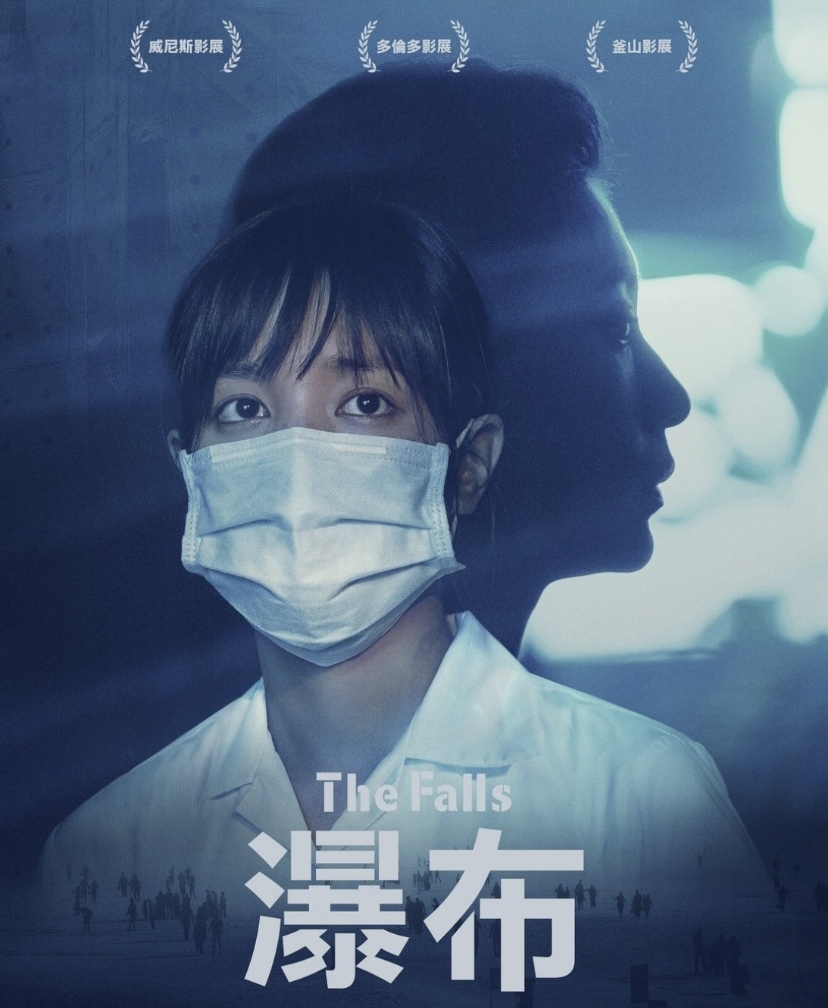In a pandemic-stricken world, it is not rare to find a film about COVD-19. There have recently been a multitude of documentaries about life in the pandemic and several films that center their stories around people’s reactions to changes in their lives. “The Falls,” however, handles things differently. Instead of focusing on the pandemic, it uses the situation to craft a gripping parent-child drama that seems more relatable than ever. Having had its world premiere at the 2021 Venice Film Festival on Sep. 6, “The Falls” came to Netflix on Jan. 29, astounding viewers with its brilliant cinematography and acting.
Set during the COVID-19 pandemic, “The Falls” follows the relationship between teenager Jing Wang (Gingle Wang) and her mother Pin-Wen Lo (Alyssa Chia), which becomes strained as the two quarantine at home. Ever since her divorce with her husband Qi-Wen Wang (Lee-zen Lee), Pin-Wen’s mental state has been deteriorating, and Jing struggles between worrying for and fearing her mother, who constantly hears the sounds of waterfalls in her ears.
Alongside being director, Mong-hong Chung took on the roles of screenwriter and cinematographer, and his handling of the film’s cinematography is astounding. In the first half of the film, blue light fills the apartment and washes over the characters like waves, creating a suffocating atmosphere as Pin-Wen’s inexplicable actions continue. In scenes with Pin-Wen and Jing, the cool lighting on the former and the warm lighting on the latter creates a contrast that clearly depicts the tension between the two. The blue lighting remains in sight until the later half of the film when Pin-Wen and Jing’s relationship begins to mend. Apart from being a beautiful artistic touch, the lighting and colors that Chung employs symbolize the very heart of the story itself – developments in the relationship between mother and daughter.
The lead actresses, Chia and Wang, put forth spectacular performances. Chia plays Pin-Wen’s initial strange behaviors with an air of eeriness, with some scenes being more frightening than some horror movies. As Pin-Wen’s situation improves, Chia shows the transition from madness to serenity skillfully, and viewers see a clear improvement in Pin-Wen’s mental state. Jing matures greatly over the course of the film, transforming from a feisty teenager to a responsible young adult. Both Chia and Wang’s performances allow their characters to develop realistically over the course of the film.
As a parent-child drama, “The Falls” explores the intricacies of the mother-daughter relationship, showing how each side affects the other. In the beginning, Pin-Wen’s irrational behaviors annoy and terrify Jing, who regards her mother’s illness with anger. As the film progresses, Jing starts to mature and understand that she needed to be there for her mother in order to mend their relationship. She does so with a changed attitude and takes responsibility and initiative to better their conditions. Likewise, Pin-Wen originally has delusions about her daughter hating her and lashes out at her multiple times. However, she also realizes that she needs to change if she wants their relationship to improve. The two face these changes with some reluctance and some fear, but they know that they’ll be there for each other no matter what.
The brilliance of “The Falls” did not go unnoticed. At the 78th Venice International Film Festival, it was nominated for “Venice Horizons Award: Best Film.” At the 58th Golden Horse Awards, it won “Best Feature Film,” “Best Leading Actress” for Alyssa Chia, “Best Original Screenplay” for Chung Mong-hong and Chang Yao-sheng, as well as “Best Original Film Score” by Lu Luming; it was also nominated for various other categories such as “Best Director” for Chung Mong-hong and “Best Cinematography” for Chung Mong-hong.
With its stunning cinematography and note-worthy acting, “The Falls” is, without a doubt, a work of art. It does not have a complex story, nor does it have convoluted plot twists. Rather, it uses realistic characters to create a realistic conflict, and all of its brilliance is shown clearly in its attention to artistic detail.
Grace Tu is an Entertainment Staff Writer. She can be reached at tug2@uci.edu.

